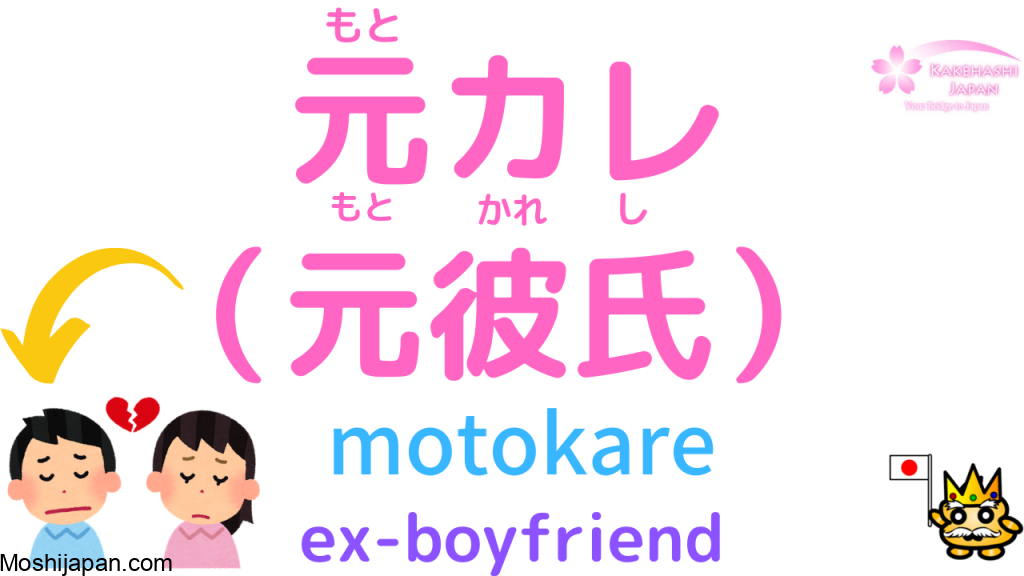How to Say “Boyfriend” in Japanese
In this comprehensive guide, we will explore various ways to say “boyfriend” in Japanese, shedding light on the nuances and cultural aspects of each term. Whether you’re learning Japanese for romance, travel, or personal enrichment, understanding how to express the concept of a boyfriend is essential. By the end of this article, you’ll have a firm grasp of the different words for “boyfriend” in Japanese, enabling you to communicate effectively in various contexts.
Translating “Boyfriend” in Japanese

Japanese, like many languages, has multiple ways to express the concept of a boyfriend, each with its own connotations. Let’s dive into these expressions and explore their meanings:
1. 彼氏 (Kareshi)
彼氏 (Kareshi) is the most common and straightforward way to say “boyfriend” in Japanese. It is a neutral term used by people of all ages and backgrounds. If you want to refer to your boyfriend in a casual or formal setting, this is the word to use. It simply means “boyfriend” without any additional connotations.
2. 恋人 (Koibito)
恋人 (Koibito) translates to “lover” or “significant other” in English. While it can refer to both a boyfriend and a girlfriend, it is a more affectionate term. People often use 恋人 when they want to emphasize the romantic aspect of their relationship. It’s a lovely way to express your feelings toward your partner.
3. 男友達 (Otoko Tomodachi)
男友達 (Otoko Tomodachi) literally means “male friend” but can be used to refer to a boyfriend in a casual context. It’s a bit more informal compared to 彼氏 but is still commonly used among friends and acquaintances.
4. ボーイフレンド (Boifurendo)
Sometimes, Japanese incorporates English loanwords, and ボーイフレンド (Boifurendo) is the direct transliteration of “boyfriend.” It is less commonly used than the previous terms, and you may encounter it more often in trendy or urban settings.
5. 亭主 (Teishu)
亭主 (Teishu) primarily means “husband,” but in some cases, it is playfully used to refer to a boyfriend, especially in long-term relationships or among couples with a sense of humor. Be cautious when using this term, as it may not be suitable for all situations.
Cultural Considerations

Understanding the cultural context in which you use these terms is crucial. Japanese society places a strong emphasis on politeness and formality, so the choice of words can convey respect or familiarity. Here are some cultural considerations when addressing your boyfriend in Japanese:
- When in doubt, 彼氏 (Kareshi) is a safe and neutral choice that won’t offend anyone.
- 恋人 (Koibito) is suitable when you want to express affection and intimacy in your relationship.
- 男友達 (Otoko Tomodachi) and ボーイフレンド (Boifurendo) are more casual and can be used among friends or in informal settings.
- 亭主 (Teishu) should be used cautiously and with the understanding of its playful connotation.
Additional Phrases

In addition to the various words for “boyfriend,” it’s essential to know a few related phrases that can help you navigate romantic conversations in Japanese:
- 好きです (Suki desu) – “I like you.”
- 愛してる (Aishiteru) – “I love you.”
- デート (Deito) – “Date.”
- 一緒にいたい (Issho ni itai) – “I want to be with you.”
- キス (Kisu) – “Kiss.”
These phrases can be used to express your feelings and intentions in a romantic relationship.
Conclusion

In conclusion, expressing the concept of a boyfriend in Japanese involves various terms, each with its own connotations and levels of formality. Depending on your relationship and the context, you can choose the most appropriate word to convey your feelings. Remember to consider cultural nuances and the level of intimacy you want to express when addressing your boyfriend in Japanese.
Now that we have explored these different ways to say “boyfriend” in Japanese, we hope you feel more confident in your ability to communicate in romantic situations. Learning these words and phrases is not only about language but also about understanding the culture and customs that surround them. So go ahead and practice expressing your affection in Japanese, and enjoy the richness of this beautiful language.
key words
- learn japanese in 90 days 2024
- japanese in use everyday
- japanese for to day
- how to say i love you in japanese



0 Comments